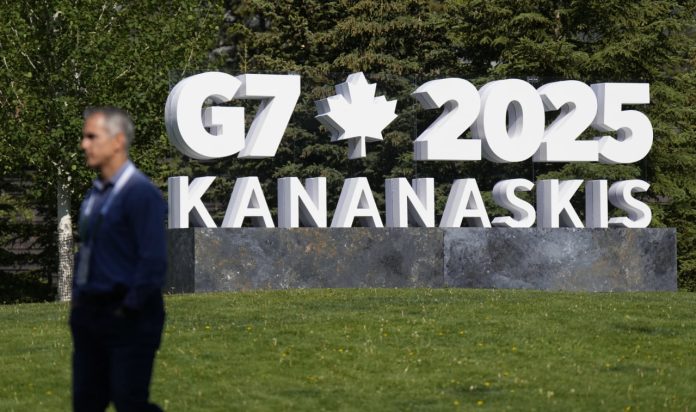Group of Seven leaders convene in Canada’s Kananaskis mountain resort against a backdrop of escalating Middle East violence and diplomatic apprehension, Reuters reports.
The summit opens hours after fresh Israeli-Iranian attacks, thrusting the conflict to the top of the agenda, with German Chancellor Friedrich Merz confirming the urgency:
This issue will be very high on the agenda of the G7 summit.
Merz outlined goals including preventing Iranian nuclear weapons, safeguarding Israel’s defence rights, and de-escalating violence through diplomacy.
A joint statement calling for restraint is expected, though host Canada’s Prime Minister Mark Carney faces the parallel challenge of preventing clashes with US President Donald Trump. Roland Paris, then-Prime Minister Justin Trudeau’s foreign policy adviser, starkly framed success criteria.
This will be a successful meeting if Donald Trump doesn’t have an eruption that disrupts the entire gathering. Anything above and beyond that is gravy.
Canadian officials have proactively replaced the traditional joint communiqué with chair summaries to mitigate potential fallout, prioritising concrete actions over symbolic declarations. Diplomatic sensitivities are heightened by Trump’s threats of Canadian annexation and ongoing US tariffs on steel and aluminium, which Carney has vowed to counter.
Beyond Middle East tensions, the summit grapples with fractures in Western unity. Ukrainian President Volodymyr Zelensky’s attendance follows February’s acrimonious White House visit, with Kyiv now tempering expectations.
European leaders meanwhile urge Trump to endorse a US Senate sanctions package alongside new EU measures to pressure Russia into ceasefire talks. French Foreign Minister Jean-Noël Barrot emphasised autonomous action.
Trade frictions further complicate proceedings. Japanese Prime Minister Shigeru Ishiba aims to persuade Trump to lift tariffs threatening Japan’s auto industry, while Trump’s team emphasises pursuing “fair and reciprocal” trade relationships.
The guest list, including leaders from India, Brazil, and South Korea, adds layers to negotiations, with Canadian Senator Peter Boehm observing that “many will want to talk to President Trump about their own particular interests and concerns.”
